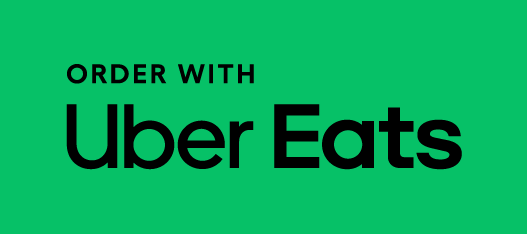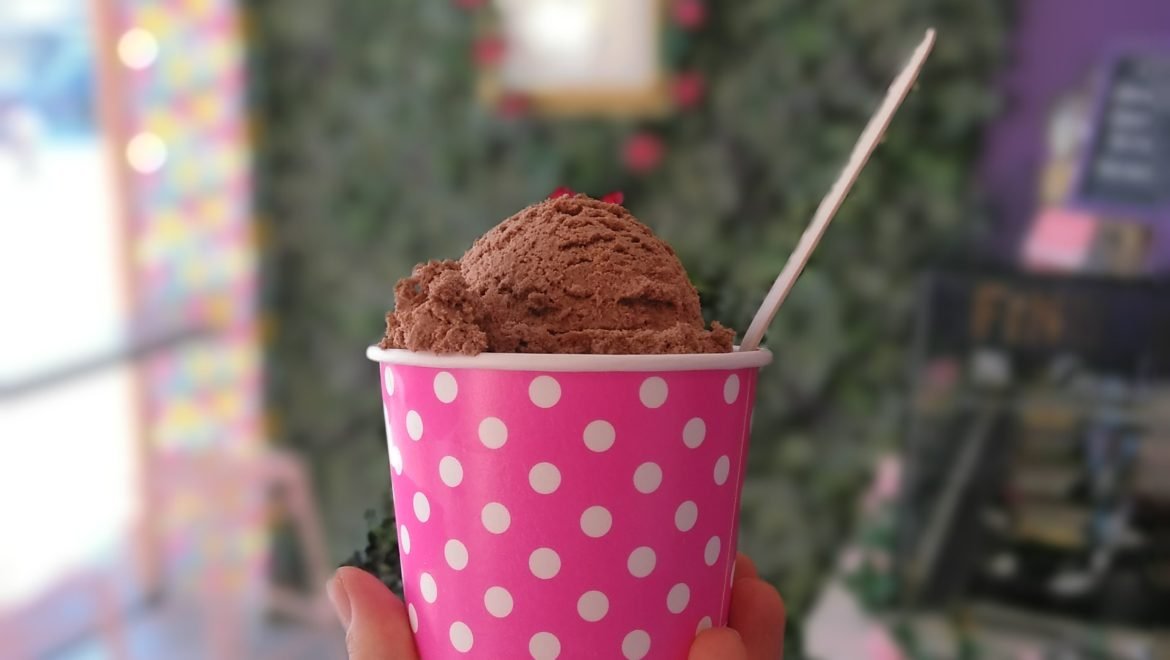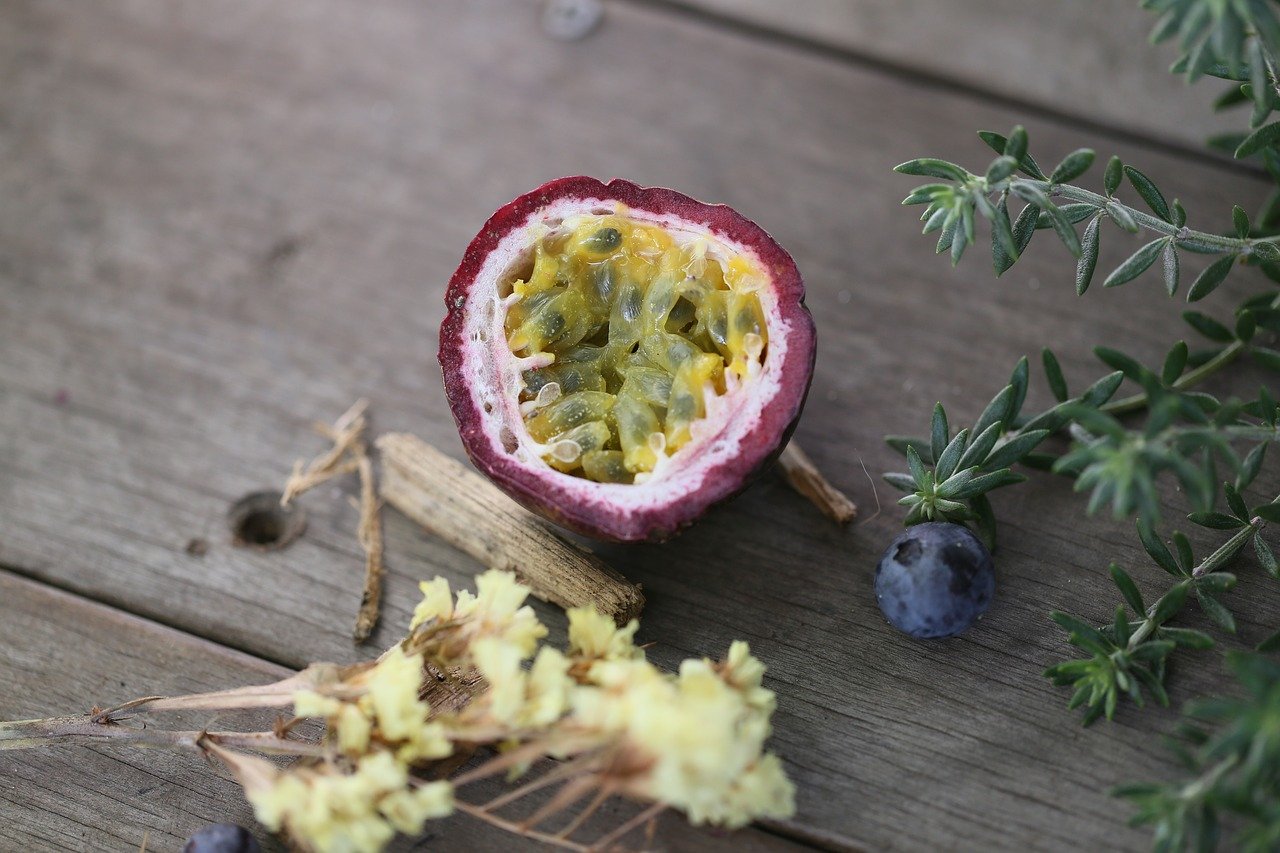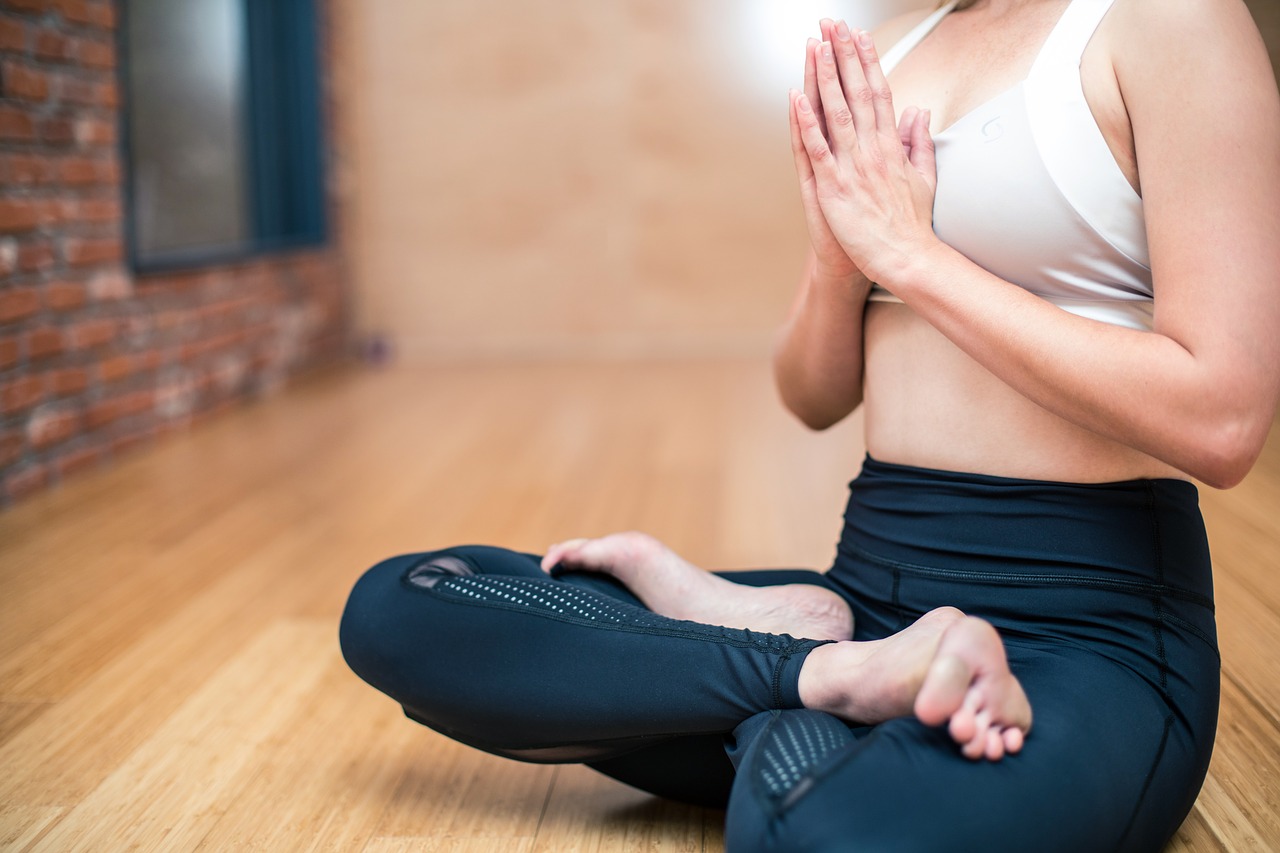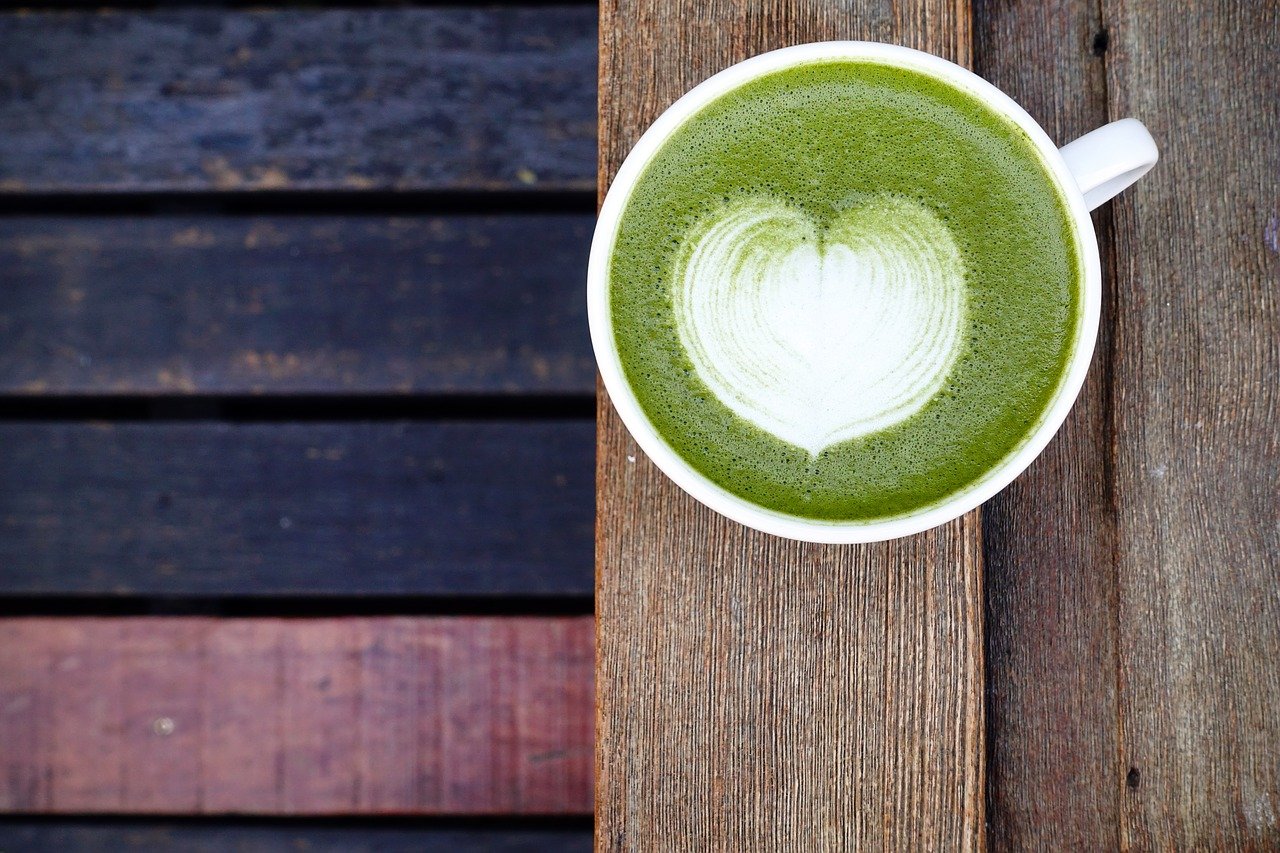Confession: I am a yoga teacher who used to hate yoga. And then I found yoga sculpt.
Growing up as a competitive athlete (playing soccer from the age of four through college), I never viewed yoga as a workout. I figured it was basically a fancy word for stretching. (Never mind I was always very self-conscious over my tight hips and severe lack of flexibility.)
When I moved to LA, I really tried to get into yoga, but I found myself often getting frustrated; I was annoyed with the slow pace, angry the people next to be were bending like pretzels with ease and restless in Savasana. Lying still for two minutes and focusing on my breath? I’ll just nama-stay-away.
But then I tried a yoga sculpt class at Corepower Yoga. Not really by choice but because my company was offering a free class and hey, if it’s free it’s for me. Still, I didn’t expect to be challenged and went in with little to no expectations. But 60 minutes later, I was transformed, having never experienced a workout quite like it.
What is Yoga Sculpt?
You see, yoga sculpt is a 60-minute class in a heated environment (usually about 93-95 degrees) that incorporates hand weights, cardio bursts and signature yoga postures. First you flow, then you go. One minute you are doing burpees or bicep curls and the next you are bowing your head to seal in your practice.
Sculpt is the perfect blend of mind and body, providing a calorie and fat-burning workout and the many mental benefits of yoga. Plus, it’s set to the beat, so you can do squats along to Lizzo’s latest bop. What’s not to love?
Two years after trying that first class, I am now a Yoga Sculpt teacher, something my teenage self would’ve refused to believe.
Given my background as an athlete, my classes are all about muscle engagement and compound movements, which work out two or more muscle groups at once. The best thing about compound movements if you can customize and modify based on your fitness level, whether you have never done a down-dog in your life or are a regular at Cross Fit.
Five Yoga Sculpt Movements You Can Try At Home
Here are five (customizable) compound movements you can try at home to give you a small sampling of what a yoga sculpt class can look like.
1. Head, Shoulders, Knees and Toes, Adult Version
We all remember that game we played as a kid, right? Well, this is the workout version of it that is a great way to shake up your normal plank game and seriously test your core’s stability and strength.
Starting in a high plank (shoulders stacked over your wrists, hips in line with your shoulders and the sides of your neck lengthened with your chin off your chest), slowly tap your head with your right hand then place it down; then tap it with your left hand. Your right hand will then tap your left shoulder, with your left taping your right. From there, your right hand taps your left knee as your drive it in toward your chest, repeat on the opposite side. Finally—you guessed it!—your right hand taps your left toe without driving your tailbone up towards the sky, repeat on the other side.
The key here is to go slow and control the movement, resisting the urge to swing your hips; they should remain stable thanks to your core. Repeat five times and feel free to sing the song as you do it.
2. Squats With a Controlled Pulse
Any sculpt class will contain a lot of squat variations as you are looking to engage your glutes, one of the largest muscles in your body, and leg muscles in different ways to always keep them guessing. That’s why I love adding pulses into the mix, which restricts the blood flow to your muscles, shocking them when you release the small controlled motion and go into the bigger movement.
For this one, start with your feet hips-width distance apart with a slight bend in your knees and your core engaged, with the option to hold one heavy weight at chest-level.
Squat down, keeping your knees stacked over your ankles, like you are sitting your hips down into a chair with your chest lifted. After a milli-second hold, pulse your hips up one inch and down one inch, slow and controlled, before standing back up. You really want to feel the burn in your quads here, especially controlling that small pulse up and down, keeping that controlled movement in your hips and not bouncing from your knees.
You can even add in a shoulder press here too, lifting the weight above your head as you rise in your full squat.
3. Crescent Lunge Lunges
Another lower body exercise, begin in a crescent lunge position, with your right knee stacked over your right ankle and your hips square and even with one another (think of the headlights on your car). With your shoulders stacked over your hips and your belly button pulled to your spine to fire up your core, lower your back knee to hover one to two inches off of the mat, hold for about a half-second before rising.
You can make this a compound movement (aka get even more bang for your buck!) by holding onto your weights and/or adding in a hammer curl (palms face one another, elbows glued to your side body), lifting and lowering your weights as you lift and lower your back knee.
Repeat on the other side, and it’s super important here to keep your front knee stacked over your front ankle; it should never jut out over as this movement is all about your back knee. You can also add in pulses (Can you tell I like pulses?) after your set of lunges by hovering your back knee one to two inches off of your mat and pulsing up one inch and down one inch, slow and controlled.
4. Glute Bridges With a Chest Press
Again, another compound movement possibility, as this can turn into a full-body workout if you are pressed on time or looking for an added challenge.
Lying on your back, bring your feet a little wide than hips-width distance apart and walk your heels close to your glutes. If you just want to focus on your booty, you can bring a set of weights to your hips, one in each hand to add a bit more weight to your glute bridges.
If you want to add in the chest press, bring your elbows out to a T by your sides with a weight in each hand. Throughout this exercise, keep your head and neck on the mat with your gaze straight up and no tuck of your chin to your chest.
Press through your heels to drive your hips up toward the sky, and if you are adding the chest, lift your weights to meet (but not touch) directly in front of your chest. As you lower down, hover your elbows and lower back one-to-two inches off the mat, resisting the urge to rest them down.
5. Obliques Twists in Horse Squat
This pose seems super easy. But it’s also super easy to mess up as many people end up working their arms and shoulders over those tiny oblique muscles by our rib cage. Just know that’s where we are targeting with this one.
Bring your feet farther than hips-width distance apart, with your heels in and toes pointing out. Sink down into a squat with your chest lifted, shoulders stacked over your hips and your tailbone down. Your knees should be tracking in line with your toes. You there? Great, now sit down another two inches.
Now grab your weights (one weight or two, it’s up to you!) and glue it into your chest. DO NOT LET THEM MOVE SERIOUSLY, DO NOT. PRETEND IT IS A PINT OF FROZEN FRUIT CO.’S SALTED CHOCOLATE AND DON’T LET IT GO. Now, using your left side oblique, twist your upper-body to the right before twisting back to center. Repeat on the other side, never letting your weights leave your chest. It’s a tiny, tiny, tiny movement but it is far more effective than just swinging your weights from side to side using your arms and shoulders. Also, your hips and legs aren’t moving here, so hold down in that horse squat!
Ready for more?
You can sculpt with me Saturdays at 5:30 p.m. and 7:30 p.m. at Corepower’s Studio City location and Mondays at 6 p.m. at the Hollywood location. And your first week of classes is free if you are a new student.
Namaste!
Tierney Bricker
This was a Guest Blog written by Tierney Bricker. Follow Tierney on Instagram at @tbrick2 or message her on Instagram if you have any questions on Yoga Sculpt. Big Love.

